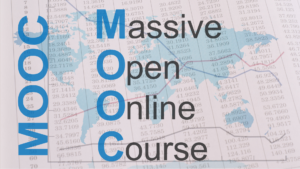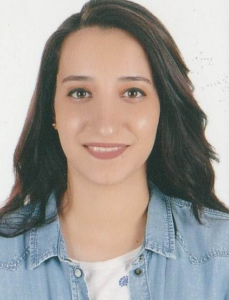What is a MOOC?
Massive open online courses (MOOCs) are “online courses available for anyone to enroll. MOOCs provide an affordable and flexible way to learn new skills, advance your career and deliver quality educational experiences at scale.” In 2021, 40 million additional students were expected to be enrolled in at least one MOOC, up from 60 million in the pandemic year of 2020.

What is the “Urban AI” MOOC?
The Urban AI MOOC is a project developed in response to the EXAF Centre’s first call for proposals to develop MOOCs on urban development in Africa, as part of the African Cities Lab’s project. The MOOC on Urban AI focuses on “Urban AI for sustainable and equitable smart African cities.” The aim of the MOOC is to introduce students and practitioners to Urban AI applications in Africa and to explore smart cities in the region.
The MOOC comprises six weeks. Each week has several learning objectives (LOs) tackled through one or more units. You can find more on the learning objectives of each week on the MOOC website. In summary, some of the topics covered in the Urban AI MOOC include:
- Urban AI
- Smart cities.
- Urbanization in Africa.
- The implications of urban AI and smart cities for African cities’ future.
- Sustainability and equity in urban planning, as well as their connection with AI and digital technology.
- Urban AI regulations.
- Urban AI applications in African Cities.
- Existing AI strategies and policies in African countries.
The Urban AI MOOC project is part of the African Cities Lab project, funded by EPFL. African Cities Lab is a joint initiative led by EPFL, the Kwame Nkrumah University of Science and Technology (Ghana), the Mohammed VI Polytechnic University (Maroc), Sèmè City campus (Benin), the University of Carthage (Tunisia), the University of Cape Town (South Africa), and the University of Rwanda to contribute to sustainable urban development on the continent. The initiative, funded by the Swiss State Secretariat for Economic Affairs (SECO), aims to create a digital education platform and its content on urban planning and urban development in Africa. The English-French bilingual ACL platform, will offer quality MOOCs and online training for professionals. It will also act as a forum for the exchange of digital educational resources and the management and governance of African cities.
The MOOC will be uploaded to the EPFL online course platform and should be available online on a self-paced basis with the possibility to schedule sessions.

Figure 1 shows the EPFL online courses catalog Source: https://courseware.epfl.ch/courses
The project is led by Dr. Mennatullah Hendawy as a Principle Investigator and Dr. Samah el Khateeb as a CO-PI. The MOOC is developed at the Smart & Future Cities Laboratory for Sustainable Urban Solutions (SFCL) at Ain Shams University in Cairo, Egypt.
The initial proposal of the project involved inviting experts from interdisciplinary fields, including Prof. Katrien Pype (KU Leuven), Stephanie Sherman (University of the Arts London), Dr. Sami Afifi (Ain Shams University), and Umami team (an eLearning Solutions company).
Who is the MOOC on “Urban AI” for?
The MOOC on “Urban AI for sustainable and equitable smart African cities” can be of interest to urban planners, social scientists, tech experts, designers, and architects, as well as all those interested in the intersection of AI, urbanism, and socio-ecological justice.
If any of these topics spark your interest, you can check out the MOOC website for more information, as well as the EPFL online course platform it will be hosted on.
Background
The Urban AI MOOC is a project that expands the previous work of part of the team on the Cairo Urban AI project (2020-2021), a project funded by Meta Research grants as a part of the request for proposals on ‘Ethics in AI Research Initiative for Africa’ and coordinated by the Human Sciences Research Council (HSRC) of South Africa. The Cairo Urban Project aimed at developing a charter for social and environmental justice-driven AI in smart city planning and development in Cairo, across the African continent, and beyond. The Charter is currently under development.

Lamiaa Abdelaziz Ghoz is an interdisciplinary architect, urban designer, researcher and educator. She received her MSc. and BSc. in Architectural Engineering from Ain Shams University in Cairo. Lamiaa is an assistant lecturer in the Architecture and Urban Design Program at the German University in Cairo. Moreover, she is the project coordinator and a research assistant at the Urban AI MOOC in Ain Shams University’s Smart & Future cities laboratory for Sustainable Urban Solutions (SFCL). Additionally Lamiaa is part of the research team at Impact Circles NGO in Berlin, where she is working on projects related to circularity, AI ethics, equitable cities, urban AI, and smart cities. In parallel to her academic and research work, she is a freelance architect and has worked for architectural firms in Egypt.
Are you currently involved with regional research, policy, and development? The Regional Studies Association is accepting articles for their online blog. For more information, contact the Blog Editor at rsablog@regionalstudies.org.